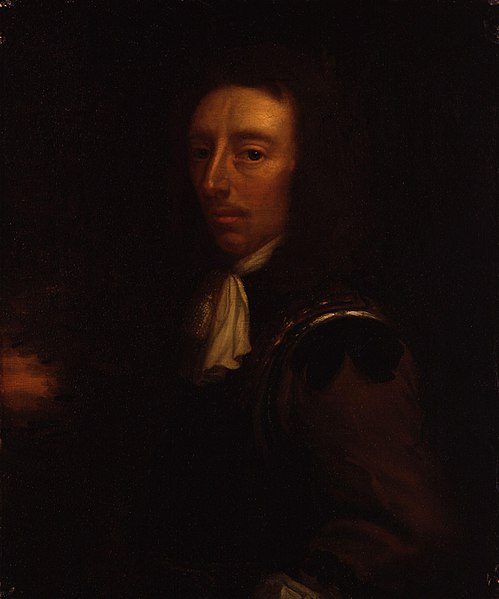Algernon Sidney or Sydney was an English politician, republican political theorist and colonel. A member of the middle part of the Long Parliament and commissioner of the trial of King Charles I of England, he opposed the king's execution. Sidney was later charged with plotting against Charles II, in part based on his most famous work, Discourses Concerning Government, which was used by the prosecution as a witness at his trial. He was executed for treason. After his death, Sidney was revered as a "Whig patriot—hero and martyr".
Sidney in 1647
Bust of Algernon Sidney made around 1793, Musée de la Révolution française
Copy of a 1663 portrait of Sidney by Justus van Egmont (National Portrait Gallery, London)
18th century hand-coloured engraving of Sidney
Discourses Concerning Government
Discourses Concerning Government is a political work published in 1698, and based on a manuscript written in the early 1680s by the English Whig activist Algernon Sidney who was executed on a treason charge in 1683. It is one of the treatises on governance produced by the Exclusion Crisis of the last years of the reign of Charles II of England. Modern scholarship regards the 1698 book as "fairly close" to Sidney's manuscript. According to Christopher Hill, it "handed on many of the political ideas of the English revolutionaries to eighteen-century Whigs, American and French republicans."
Title page of Discourses Concerning Government, 1698





